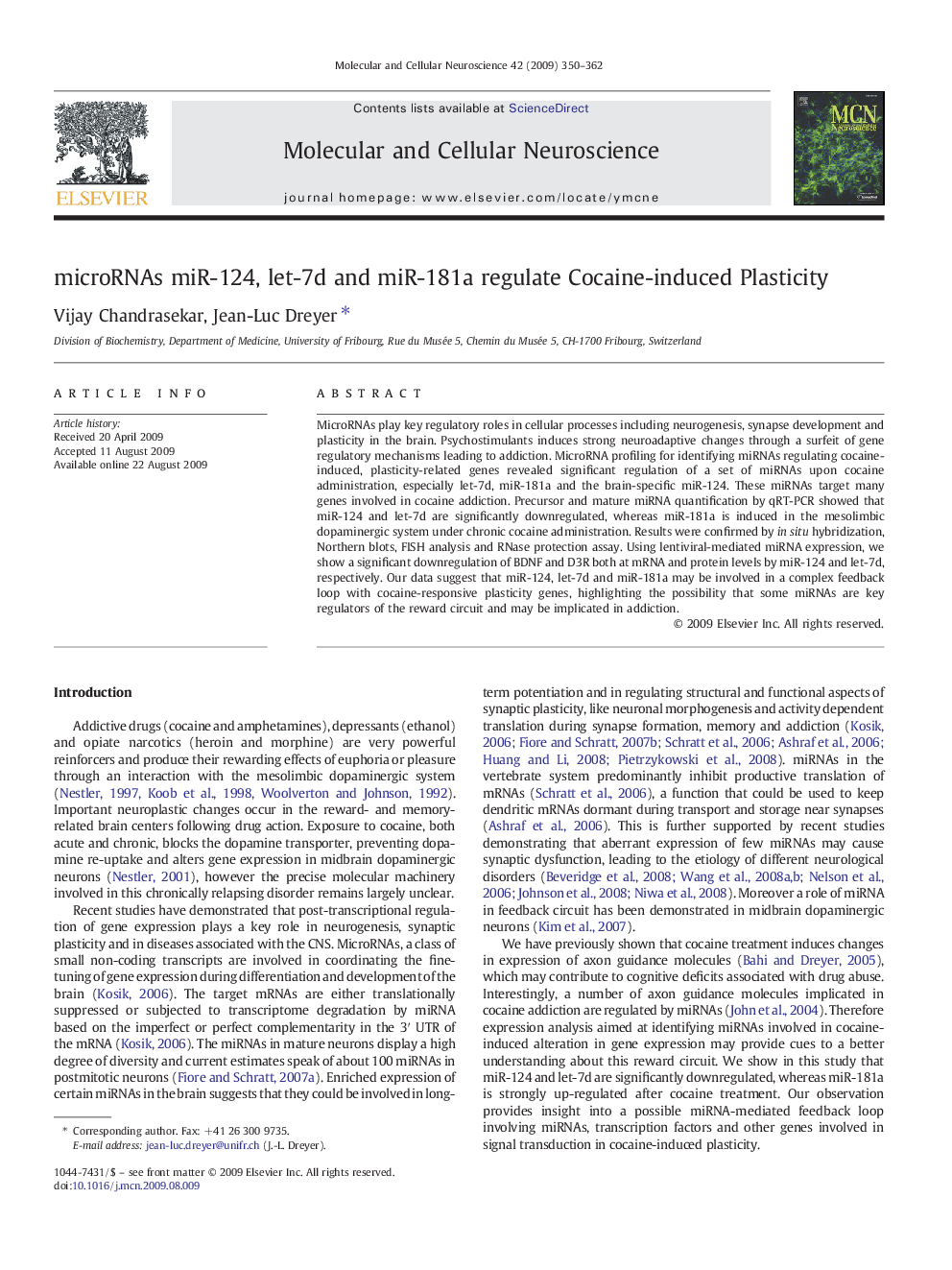| Article ID | Journal | Published Year | Pages | File Type |
|---|---|---|---|---|
| 2198854 | Molecular and Cellular Neuroscience | 2009 | 13 Pages |
MicroRNAs play key regulatory roles in cellular processes including neurogenesis, synapse development and plasticity in the brain. Psychostimulants induces strong neuroadaptive changes through a surfeit of gene regulatory mechanisms leading to addiction. MicroRNA profiling for identifying miRNAs regulating cocaine-induced, plasticity-related genes revealed significant regulation of a set of miRNAs upon cocaine administration, especially let-7d, miR-181a and the brain-specific miR-124. These miRNAs target many genes involved in cocaine addiction. Precursor and mature miRNA quantification by qRT-PCR showed that miR-124 and let-7d are significantly downregulated, whereas miR-181a is induced in the mesolimbic dopaminergic system under chronic cocaine administration. Results were confirmed by in situ hybridization, Northern blots, FISH analysis and RNase protection assay. Using lentiviral-mediated miRNA expression, we show a significant downregulation of BDNF and D3R both at mRNA and protein levels by miR-124 and let-7d, respectively. Our data suggest that miR-124, let-7d and miR-181a may be involved in a complex feedback loop with cocaine-responsive plasticity genes, highlighting the possibility that some miRNAs are key regulators of the reward circuit and may be implicated in addiction.
